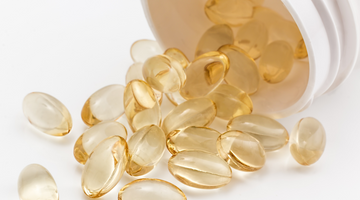Home remedies for a yeast infection

Most women will experience one or more yeast infections in their lifetime. Is it always necessary to see your primary care provider? A lot of yeast infections can be treated with over the counter medications. We’ll discuss possible over-the-counter and natural remedies, whether the options are viable, and some preventative measures you can take to lower your risk of getting a yeast infection in the first place.
Yeast infection remedies
The most effective method for treating a yeast infection is to take an OTC or prescribed antifungal medication, or in some severe cases, an antibiotic prescribed by your doctor. There are several forms of treatment options including tablets, creams, and suppositories. The form in which you take the medication will be based on the severity and type of infection that you have. You can always discuss treatment options with your primary care provider if you have a specific preference of treatment to see what options may be available to you. Home remedies have the potential to relieve yeast infection symptoms, but there is not strong evidence that home remedies will completely resolve your infection.
Can you cure a yeast infection at home?
You don’t always have to contact your primary care provider for a yeast infection, but it is important to know that you should consider doing so if your symptoms persist or worsen. In some cases, mild symptoms may clear on their own, but may still require medications to completely resolve. You can use OTC treatments and homeopathic remedies before reaching out to your primary care provider. Research suggests that natural remedies have the potential to ease yeast infection symptoms, though results vary. Such treatments can be used in conjunction with other treatment options including antibiotics or antifungal medication. Before attempting to treat a yeast infection at home, we suggest speaking to your primary care provider about how to do so safely.
OTC treatment
Antifungal medications are available without a prescription at most drugstores and supermarkets. You can choose to treat with cream, a dissolvable tablet, or a vaginal suppository. If symptoms persist after a few days of treatment from home, it is important to speak with your primary care provider. Your primary care provider can help you figure out if you are on the right treatment regimen to resolve your infection or help you correctly diagnose the specific type of infection you have. Common OTC medications you can find include Butoconazole Nitrate, Miconazole Nitrate, and Tioconazole. Always read instructions carefully and if anything is unclear, speak with the pharmacist or your primary care provider.
Test and treat yeast infections
Natural ways to get rid of yeast infections
Natural remedies can be used to provide relief of symptoms, especially when combined with prescribed medications by your doctor. The evidence that natural remedies alone can resolve your infections is not strong. There’s anecdotal evidence that these remedies can ease symptoms, not cure the infection. It doesn’t seem like the remedies will do much harm (if used properly), but it’s best to use them as a complement to an antibiotic or antifungal medication to be sure the infection is completely resolved. If you’re curious about alternative therapies, we suggest speaking with your primary care provider for a full assessment and diagnosis, then by a discussion about which natural remedies may be beneficial to treating your symptoms and resolving the infection.
Garlic for yeast infections
There is a long history of using garlic as a treatment for various ailments. Garlic produces allicin, a compound that reduces inflammation. This attribute has the potential to ease, not cure, symptoms of a yeast infection. Current evidence suggests that using garlic as a natural remedy only works with certain strains of yeast infection and in conjunction with other antifungal treatments. It’s important to remember that anything put in the vagina has the potential to cause further irritation, though. It can be beneficial to discuss your options with your primary care provider before attempting any home remedies.
Tea tree oil for yeast infections
Historically, tea tree oil has been used as an antifungal treatment, though more studies on efficacy and safety are needed. Not all tea tree oils have these properties, either. Melaleuca alternifolia, is the specific type of tea tree oil that might ease yeast infection symptoms. If using this, tea tree oil needs to be diluted prior to use in the vaginal area. One technique involves blending a small amount of tea tree oil with cold-pressed vegetable oil. You can soak a tampon in the mixture for insertion, though it is important to monitor how many times you change this tampon each day, and how long you leave it in at a time. Diluted tree oil is for topical use only. If you’re pregnant or breastfeeding, using tea tree oil isn’t recommended.
Probiotics for yeast infections
There are also claims that probiotics can offer relief for yeast infections. Probiotics have the potential to help rebalance your vaginal microbiome by introducing some microorganisms that should be present naturally (“good” bacteria). Some studies show a positive correlation between the use of probiotics and minimizing yeast infection symptoms. More research is needed in this area of study.
vaginal-health-probiotic
Prevention tactics
Yeast infections aren’t entirely avoidable, but there are some things you can do to minimize your risk of getting one. You can:
-
Wear loose-fitting and comfortable clothing, including breathable underwear
-
Change out of wet clothing promptly
-
Avoid scented hygiene products
-
Ask your primary care provider about birth control methods (hormonal changes increase the risk of yeast infection)
-
Only use antibiotics when necessary (antibiotics can kill bacteria that should be present)
If you do get a yeast infection, and it your symptoms are persisting with over-the-counter medications, we suggest getting in touch with your primary care provider to discuss what medications may be best for you.
vaginal-testing-combo
Keep Reading

Abortion bans hinder miscarriage treatment
Jun 25

Abstinence education doesn't make kids safer
Jun 16

Trump just rolled back emergency abortion protections: here’s what you need to know
Jun 4







